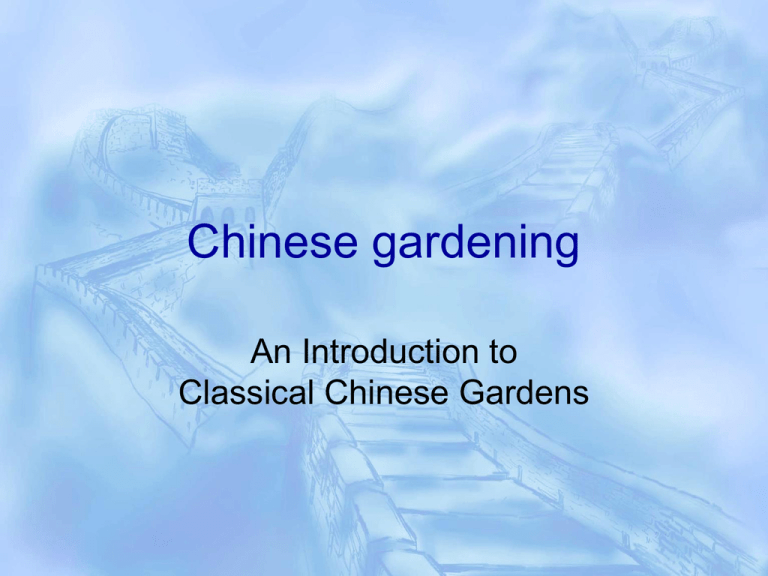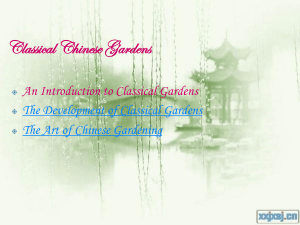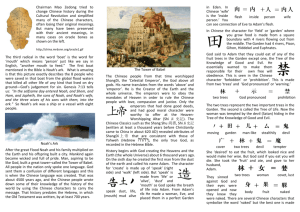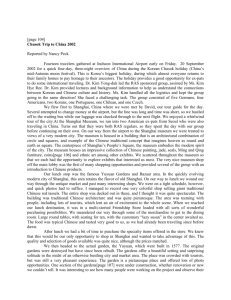Chinese gardening
advertisement

Chinese gardening An Introduction to Classical Chinese Gardens For centuries, Chinese gardens have displayed a delicate balance between the forces of nature and man’s creations. These luxurious gardens provide a spiritual haven from worldly worries. A delicate balance of five key elements will make up the USNA’s (US National Arboretum ) Classical Chinese Garden, creating a setting where visitors can learn, relax and enjoy. Water is considered to be the central component of a Chinese garden. It serves as a balance for the other elements in the garden. The best sites in Chinese gardens are on the edges of lakes with views of the mountains. Chinese scholars used rocks as art on their desks. Garden rocks that are often large and porous are considered to be among the most valuable in a Chinese garden. These ageless objects symbolize the dwellings of Taoist immortals. Certain plants were favored for Chinese gardens because of their association with overcoming the limitations of ordinary life. The pine, cypress, plum and bamboo are favorites because of their ability to grow in harsh weather conditions and rough terrain. The arrangement of buildings divides a Chinese garden into smaller sections that contain one or more scenic views. The buildings in a garden are designed to accent the garden with windows and doorways that frame scenic views in their courtyards and beyond. A garden design is considered to be an art form in China. Other Chinese art includes: calligraphy, painting, poetry, dance, flower arranging and viewing stones.











